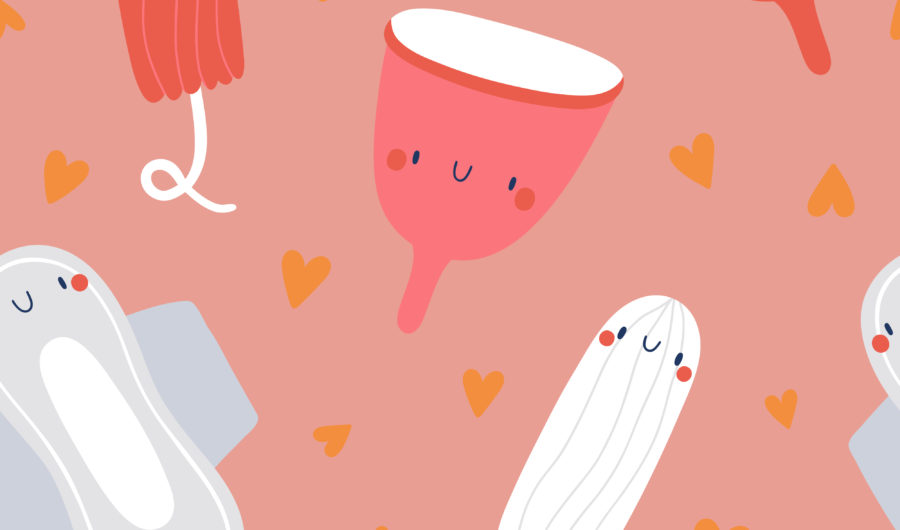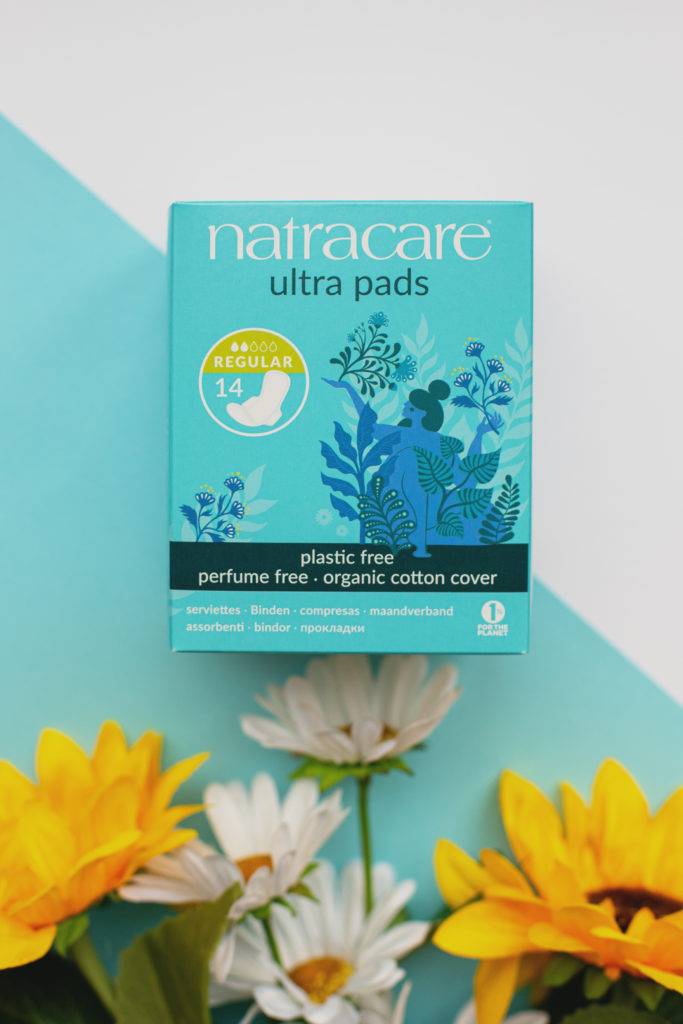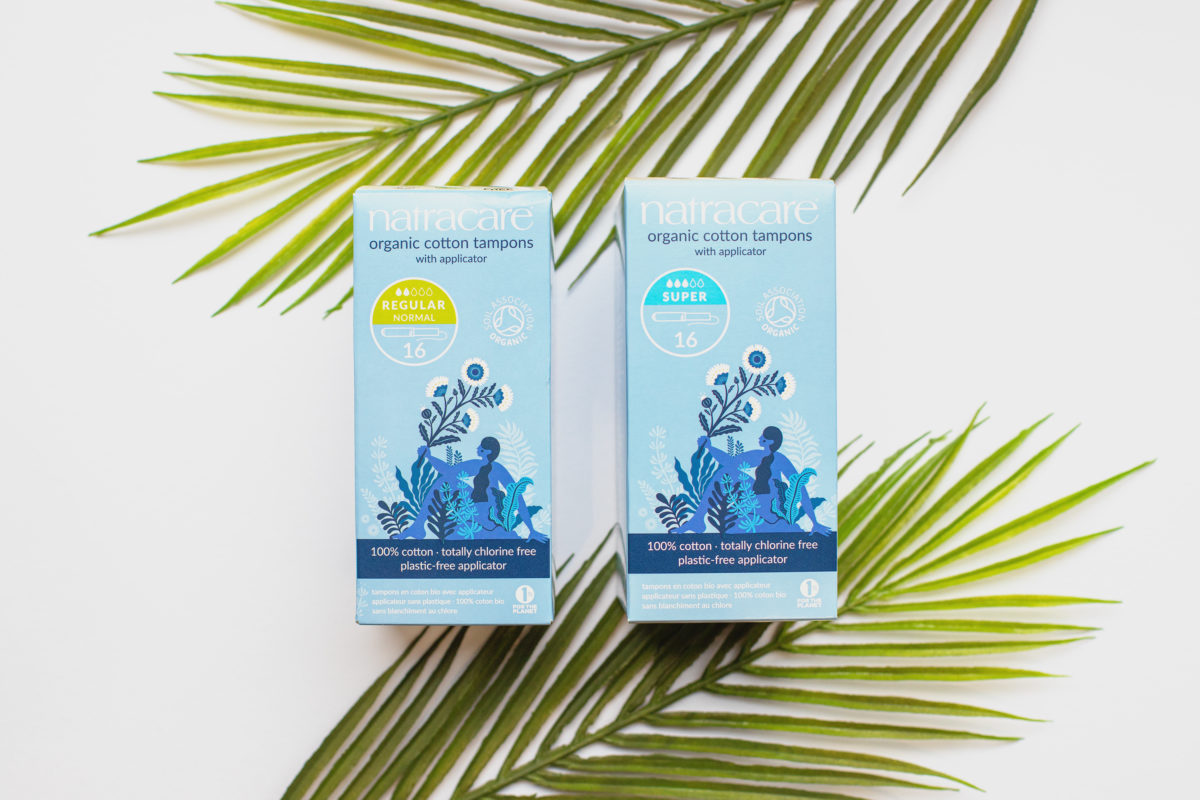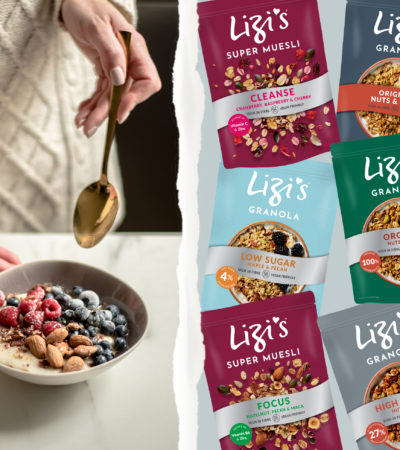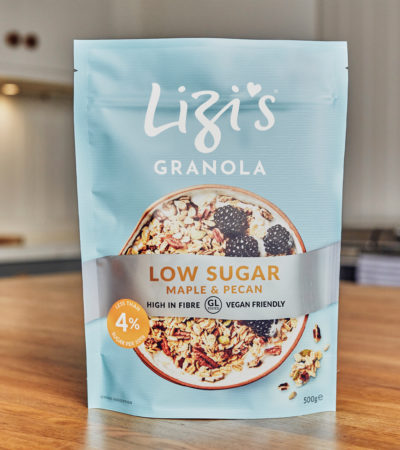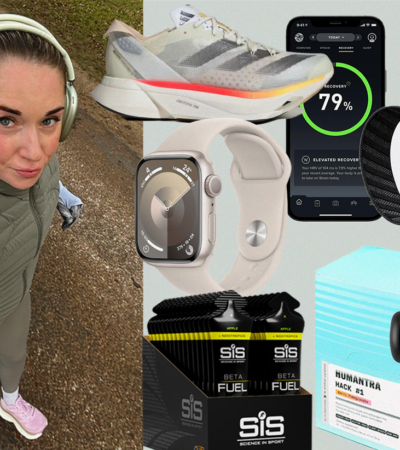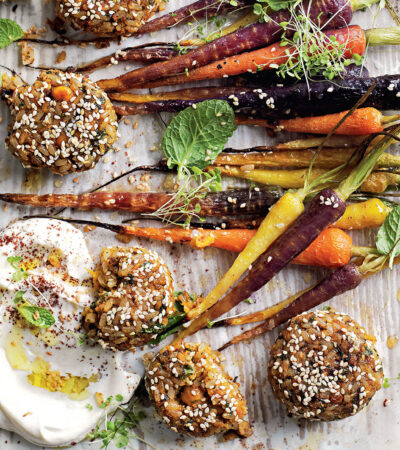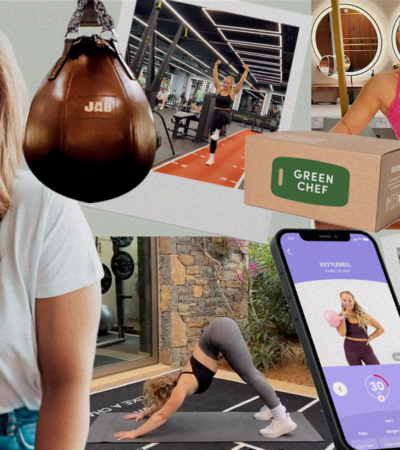We recently asked our lovely readers to send in their questions relating to all things periods and female health and while going through the many questions we received, some clear themes emerged. It became apparent that lots of women want answers to similar questions and suffer from all sorts of cycle-related issues. From pain management, regulating periods to how to deal with PMS, we called upon the period experts at eco period brand, Natracare to shed light on some of your questions and how we can all make our period more earth-friendly.
“How can I live in balance with the different stages of my menstrual cycle? “
When you think about your menstrual cycle, it’s easy to focus on the menstrual phase (i.e. your period) and not pay much attention to the other phases. It’s often the most noticeable of the phases, and the others can feel like a lead up to your period. At Natracare we prefer to think of the menstrual cycle like the seasons – you may find that managing each phase like you would the changing seasons helps you to feel more balanced.
Menstrual phase: Just like in winter, when you’re on your period you might feel like cozying up and hibernating. The menstrual phase is when your progesterone and oestrogen are at their lowest, so you might be feeling menstrual fatigue or other PMS symptoms. Look after yourself during this phase with plenty of snacks and a hot water bottle.
Follicular phase: AKA your period has just ended, spring has sprung! During this phase you experience a boost of oestrogen, your skin is at its clearest and brightest, and you’ll be feeling refreshed. Use this new energy to achieve your goals or do something creative.
Ovulatory phase: This phase is just like summertime. Your oestrogen levels and your fertility are at their highest. You’ll be feeing energized and sociable – it’s the best time to meet new people and be your most active self.
Luteal phase: Autumn’s weather is often temperamental – it chops and changes between cold, clear days to heavy rain. During the luteal phase you’ll notice your mood chop and change too. Your hormone levels start to rise and fall, and PMS starts to kick in. This is when you know your period is coming. Take things easy and focus on what makes your mind and body feel good, like going for a walk, doing some light yoga, or taking some me-time.
“What are the best period products to use?“
This is a great question! The short answer is there is no ‘best’ product to use – everyone is different, and you may find that some products suit you and your period better than others. There are so many options out there too so don’t be afraid to try something new. But at Natracare we do believe in choosing period care that puts you and the planet first – no period product should impact our health or leave a lasting impact on our planet.
We make disposable, compostable period products made from organic and natural materials. We avoid using plastic, perfumes, and harsh chemicals, so you can rest assured that your period protection is gentle on intimate skin and on the environment. Reusable period products like menstrual cups are also a great option, but if they aren’t the right choice for you, look out for disposables that are organic and compostable.
“I’ve always suffered from terrible period pains. What painkillers aside from paracetamol would you recommend?“
Ibuprofen is great for reducing inflammation and pain, but there are some natural ways to reduce pain as well:
- Chamomile tea is packed with antioxidants that can help calm periods cramps and mood swings. It’s also a great hormone balancer which can lead to more regular cycles.
- Taking Vitamin B1 supplements can support muscle contractions and nerve symptoms, making cramps less intense and frequent.
- Studies have found that ginger is as effective as ibuprofen for helping inflammatory pain. You can take ginger as a supplement or add ginger and lemon to hot water for a soothing tea.
“What supplements are good for regulating your cycle?“
Although the average menstrual cycle lasts 28 days, many people experience irregular periods quite regularly (no pun intended!). If you’re trying to regulate your cycle, there are a few supplements that may help. Turmeric has many positive health impacts, such as reducing inflammation and PMS symptoms. But it’s also been shown to have effects similar to oestrogen, meaning it may help to regulate your periods. Make sure you’re getting enough healthy fats as these also support hormone levels and ovulation. Common sources include walnuts, flax seeds and salmon, but if you’re struggling to fit these into your diet consider taking a supplement.
“I haven’t had a period for 14 months and am struggling to understand why I lost them and how to get them to return! Is there anything you suggest?“
If you’re concerned about your periods, or there has been a dramatic change in your cycle’s regularity, it’s always a good idea to speak to your GP.
Irregular periods don’t always signal that there is a problem, but any sudden changes in your life can affect your cycle’s regularity. If you recently switched up your diet you may have experienced some weight changes which can affect your cycle. If you’re suddenly more active than you were before or not exercising as much as you used to, this can affect your periods too.
Stress can also be a big factor. 2020 was a stressful year for many reasons, so if you’re experiencing more stress than usual, the length of your flow or the regularity of your period can be impacted. Although we can’t always remove external stressors, we can try and regulate our emotions and control stress. Whether you love taking walks in nature or simply having a hot bath in the evening relaxes you, make sure you find time to recharge your batteries.
Everyone’s body is different, and you know what’s normal for you – if you’re worried about what’s causing your irregular cycle, make sure to speak to your doctor.
“Are there any dietary tips to help alleviate painful periods caused by endometriosis?“
For the 1 in 10 of us living with endometriosis, trying to manage debilitating period pain, on top of a whole host of other symptoms can be really difficult. But there a few changes you can make to your lifestyle to help reduce inflammation and pain.
Cut down on inflammatory foods and drinks – in general, the food we eat plays a huge role in how we feel. This also applies to endometriosis. Foods like dairy, alcohol, refined sugar, and caffeine are considered inflammatory and could make bloating or cramps worse, so it’s best to avoid these whenever possible.
Increase your intake of veggies and fatty acids – studies have shown that eating foods rich in Omega-3, such as salmon, chia seeds, mackerel and flax seeds can help to reduce pelvic pain caused by endometriosis. And if you suffer from heavy bleeding because of endometriosis, iron-rich foods like leafy greens and beetroot will help to boost your iron levels.
“Why do I always get really bad backaches during my period?“
During your period, the muscular wall of the uterus contracts to shed the tissue in the uterus lining. These contractions cause your body to release pain-triggering chemicals, encouraging your uterus to contract more, which can cause more pain. These cramps are usually felt in the abdomen, but it’s not uncommon for there to be pain in the lower back. Pain can radiate through the mass of nerves in the pelvic region and reach your back muscles. It’s also not uncommon to feel pain in the tops of your thighs!
“How does the menstrual cycle affect our skin health (for example acne)?“
Just like how each stage of the menstrual cycle affects how we’re feeling, each phase can also affect our skin. You’ve probably noticed that your skin can get oiler right before your period, which might lead to ‘period acne’. The dramatic changes in hormones that signal your period also bring on PMS symptoms, including spots, oiliness, and uneven skin tone. In the follicular phase, your oestrogen levels increase and this is when your skin is at its best – your skin thickens, decreasing pore size and promoting collagen production. To help combat period acne as you move towards your menstrual phase, try anti-inflammatory and antioxidant rich face masks.
“What can you do to minimize PMS symptoms such as irritability or feeling depressed?“
No matter where you are in your menstrual cycle, it’s always important to look after yourself and your mental health. But PMS can often make it harder to feel positive. If you’re feeling irritable, anxious, or depressed, take some time out each day to really relax and focus on yourself. This could be taking ten minutes for some breathing exercises, or doing activities that you enjoy, such as reading, watching TV, or baking. Whatever relaxes you, go for it! If you’re feeling up for it, some light exercise can be great for clearing your mind. Try some gentle yoga poses and enjoy taking that time for yourself (gentle yoga can also be great for period pain). But if these feelings persist or become overwhelming, make sure to speak to your doctor.
“What period products would you recommend for young girls just starting their period?“
There are lots of different products to choose from these days (which is amazing!), but if you’re new to periods, tampons or menstrual cups might feel a little daunting at first. Period pads are a great choice for those just starting out who aren’t quite ready to use a tampon. Naturally, we recommend Natracare’s range of sustainable period pads – not just because they’re great for beginners but also because they’re great for the planet too.
“Why do I get terrible period pain some months and not others?”
Our menstrual cycle is often affected by our lifestyle, and not every month is the same for us. Some of the things to consider are if you’ve been feeling extra stressed, if you’ve been drinking more alcohol or eating more processed foods than usual, or maybe you’ve not been getting as much sleep. Stress can amplify PMS symptoms, so your period may feel more painful if you’re stressed. Dehydration from alcohol can make your period cramps feel worse, and processed foods high in sugar can make inflammation inside the body worse too. As you approach your period, try to nurture your mind and body as much as possible to help reduce period pain.
To discover Natracare’s full range, head to www.natracare.com
For more tips and tricks to support you throughout your menstrual cycle, follow Natracare on Instagram.


